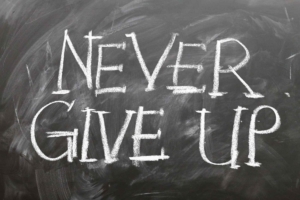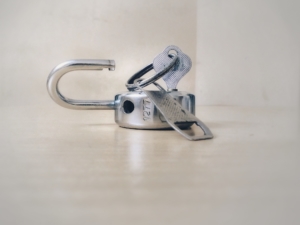Unshelving Hope: Anxiety, Personal Development, and Summoning the Courage to Dream Again
We don’t have to wait for a special time of year to generate the momentum to craft new goals. If we want to change a habit that supports our ultimate vision, we can resume our personal development journey from where we are with the Lord’s help. For additional guidance and support, Newport Beach Christian Counseling can provide the encouragement needed to help you stay on track with your goals.
The One who fashioned us has equipped us to do with Him what we otherwise couldn’t do on our own. Through the voice of Isaiah, a significant Old Testament prophet, God encourages us to forget the old. In difficulty and dry places, The Father promises that newness will suddenly emerge (Isaiah 43:18-19).
At some point, God’s people had to stop looking at the old and make room in their hearts and expect to encounter the Lord in fresh ways. It doesn’t appear only in the Old Testament, but also in the New, where Jesus taught about pouring new wine into old wineskins (Mark 2:22).
Sometimes, we seek new experiences, yet we cling to old mindsets that cannot reasonably support the growth and expansion of what is fresh and developing. To advance our personal development, we need the power of God to spark the change that begins internally and flows externally to people and places around us.
Everything left in our past (old wine) may not necessarily be “bad,” but loyalty to our experience over faithfulness to the new wine of the Holy Spirit will restrict what the Alpha and Omega desires to launch and complete in us.
We tend to attach fear and anxiety to the unknown. It isn’t that we won’t experience discomfort or occasional apprehension. Yet, we don’t have to be controlled by the spirit of fear.
Anxiety seeks to control what we don’t know by recycling intrusive thoughts and obsessions. However, embracing God’s power, love, and self-control transplants us from abiding in the restlessness and agitation that anxiety produces (2 Timothy 1:7 ESV). We can opt into different choices that surrender the illusion of control, by continually submitting our hearts, minds, and the details we don’t know to the all-knowing God who does.
We can form healthy habits of the heart that support the newness that God desires to produce in and through us. Sometimes, we become weary in the wilderness, that is, in between what we desire to see and where we started. Motivation itself isn’t often enough to create lasting change in our personal development. Thankfully, the Lord has placed resources at our disposal that provide enough structure to support a substantial dream.
Whether or not we use those tools directly with Him, on our own, or in partnership with others, the Holy Spirit remains present to guide us into our future and the fulfillment of promises.
Be Grateful
While we don’t live in the past, remembering what God has done arms us against despair. This encourages us and boosts our faith when anxiety’s dark clouds hover.
Creating a gratitude practice is an intentional action that refocuses us on God’s limitless ability, despite present circumstances. It has the added benefit of stilling worry and anxiety associated with the uncertainty. We might find ourselves tempted to complain, mutter words of doubt, or remain agitated in fear about what God hasn’t revealed, yet we must deliberately look up and ahead.
But this I call to mind, and therefore I have hope: The steadfast love of the Lord never ceases; his mercies never come to an end; they are new every morning; great is your faithfulness. Lamentations 3:21-23 ESV
Whatever God has planned is better than what remains in the past. The children of Israel murmured against Moses about the leeks and cucumbers they left in Egypt, but Canaan, their Promised Land was waiting. In their future, the land of milk and honey, a fruitful land, promised to be better than what they remembered about Egyptian captivity.
“‘The glory of this present house will be greater than the glory of the former house,’ says the Lord Almighty. ‘And in this place I will grant peace,’ declares the Lord Almighty.” Haggai 2:9 NIV
It could be easy to camp out on past failures or successes, no matter how good, but when we turn our face toward the future that the Lord has planned, it renews hope for encountering another facet of the Father’s heart. God doesn’t make empty promises, so if the Holy Spirit has instructed us to look up or ahead, there is not only grace for it but also something He wants us to be ready to see.
Be Open
When we begin walking toward our goals and incorporating new habits, our preparation demonstrates faith in Him over our fears and anxiety. We aim our efforts and attention, much like an arrow, to strike targets in the direction of our destiny.
 Clearing mental and emotional clutter releases what served a previous environment or season but won’t work in the new setting. As we learn to live with a mind that’s opened to dream with God, a heart to desire with God, and hands to do with God, we carve a welcome space for the Lord to manifest His Will on the earth.
Clearing mental and emotional clutter releases what served a previous environment or season but won’t work in the new setting. As we learn to live with a mind that’s opened to dream with God, a heart to desire with God, and hands to do with God, we carve a welcome space for the Lord to manifest His Will on the earth.
Not only will our personal development accelerate through the fruit of goals and improved habits, but we will experience a greater dimension of the God who exceeds and abounds beyond what we ask, think, or imagine (Ephesians 3:20).
Be Clear
And the Lord answered me: “Write the vision; make it plain on tablets, so he may run who reads it. For still the vision awaits its appointed time; it hastens to the end—it will not lie. If it seems slow, wait for it; it will surely come; it will not delay. Habakkuk 2:2-3 ESV
Write the vision that God has begun to script in your heart. Sit with the Holy Spirit to hear Him clearly, even as your dreams resurface. You don’t have to fear what you see, as God is the One who has populated your heart with its unique desires (Psalm 37:4). He has the power to bring them forward and into fruition. So, be bold and creative. Identify what you want to see evolve in your life and embrace the Lord’s timing to partner with Him as it unfolds.
Use this power of visualizing by creating pictures that support your brain’s capacity to think and your mind’s ability to envision. Connect words or images that illustrate your vision in a place where you can intentionally refer to it, consistently gathering inspiration and encouragement. This practical step reinforces faith in what seems impossible.
When you don’t feel inspired or hopeful, building a habit around visualizing God’s promise, aligns and applies Scripture’s power and principles to your prayers and plans. Acting in faith before you see manifestation cultivates spiritual sustainability and stirs the courage to keep dreaming with God in the wilderness and through the waiting.
Be Diligent
Anything worth having will require an investment, whether spiritual or practical. It is important that we not only spend time with the Lord, assessing what the work will require of us in our personal development journey (Luke 14:28). We must also receive the grace that will sustain and strengthen us as we apply our natural aptitudes and spiritual abilities to our current assignment.
Whatever you do, work at it with all your heart, as working for the Lord, not for human masters, Colossians 3:23 NIV
Scripture admonishes us to work willingly with our hands and to do everything as unto the Lord. While we may be tempted to disengage when the process becomes difficult, we can invite the Holy Spirit to bring times of refreshing, rest and renew us in hope, and refuel us for Jesus’ ultimate and eternal purpose (Acts 3:19).
Next Steps
While you may have experienced a variety of challenges that shelved your hope, it is possible to overcome the anxiety that may have stalled your personal development. Seek counseling resources from Newport Beach Christian Counseling and schedule with a professional for the support you need.
The Lord may be awakening you now to engage with the reality of dreaming and doing with Him. Commit to meeting with your counselor so you can embrace the courage to dream and experience the fullness you were created to enjoy with the Lord.
“Rock Formations”, Courtesy of Unsplash, Unsplash.com, CC0 License

 However, technology has allotted us so much time that we fit too much into our day and our minds get overly stimulated. Cell phones also add to our stress because we are constantly online and available. Whether scrolling through a social media feed, texting a friend, or looking at the Internet to find a bargain, our minds are constantly stimulated with information.
However, technology has allotted us so much time that we fit too much into our day and our minds get overly stimulated. Cell phones also add to our stress because we are constantly online and available. Whether scrolling through a social media feed, texting a friend, or looking at the Internet to find a bargain, our minds are constantly stimulated with information. Allow the body time to rest. Take sixty minutes each day when you normally look at a screen and get into a dark, cool room. Place a cold washcloth or sleep mask over your eyes. Listen to the sound of your breathing. Take deep breaths for sixty minutes. Try not to sleep (don’t fight it if you must sleep). Catching up on physical rest may be a way for your body to restore its cortisol levels.
Allow the body time to rest. Take sixty minutes each day when you normally look at a screen and get into a dark, cool room. Place a cold washcloth or sleep mask over your eyes. Listen to the sound of your breathing. Take deep breaths for sixty minutes. Try not to sleep (don’t fight it if you must sleep). Catching up on physical rest may be a way for your body to restore its cortisol levels. While this may not be ideal for everyone, if work stresses you out too much, find a way to work smarter, not harder. Is it necessary to work forty hours? Can you be more efficient so you’re not working so hard throughout the week?
While this may not be ideal for everyone, if work stresses you out too much, find a way to work smarter, not harder. Is it necessary to work forty hours? Can you be more efficient so you’re not working so hard throughout the week? Emotional exhaustion is more common than people think. But by trying the suggestions above, you will do your physical body and spirit a great service and ensure your emotional state is as healthy as possible. These changes will help you become a better human being and a Christian.
Emotional exhaustion is more common than people think. But by trying the suggestions above, you will do your physical body and spirit a great service and ensure your emotional state is as healthy as possible. These changes will help you become a better human being and a Christian. According to Enneagram coach Suzanne Stabile, “the Enneagram acts as a unique tool for understanding and explaining human behavior and the underlying motivations that drive behavior and the gifts we all have for the transformation of non-productive encounters with others.”
According to Enneagram coach Suzanne Stabile, “the Enneagram acts as a unique tool for understanding and explaining human behavior and the underlying motivations that drive behavior and the gifts we all have for the transformation of non-productive encounters with others.” People rarely take time to enjoy things when life feels hard. It is easy to worry about how to move forward or stress about what is to come. This prevents you from enjoying anything in the present. Taking a step back gives space to be present and find joy in what.
People rarely take time to enjoy things when life feels hard. It is easy to worry about how to move forward or stress about what is to come. This prevents you from enjoying anything in the present. Taking a step back gives space to be present and find joy in what. Physical health issues are a reality for those who work in the healthcare industry. During the COVID-19 pandemic, they were on the front line and therefore more at risk for contracting the virus themselves. Those in the health profession are also more at risk of physical harm as they carry and attend to those in distress.
Physical health issues are a reality for those who work in the healthcare industry. During the COVID-19 pandemic, they were on the front line and therefore more at risk for contracting the virus themselves. Those in the health profession are also more at risk of physical harm as they carry and attend to those in distress.
 Have you ever repeated a decision as if you still have not learned the lesson? We probably all have at one time or another. You may make the same choice if your emotions get in the way of logic, or if you cannot think of a better choice.
Have you ever repeated a decision as if you still have not learned the lesson? We probably all have at one time or another. You may make the same choice if your emotions get in the way of logic, or if you cannot think of a better choice. Before making an impulsive decision or behavior, ask yourself about the long-term consequences.
Before making an impulsive decision or behavior, ask yourself about the long-term consequences. Between deadlines and competing demands, responsibilities at work can destabilize us and cause us to feel overwhelmed when serving the marketplace with our gifts. This may encumber us with an unnecessary burden of responsibility, goading us into codependency at work, trying to save the world and our workplace.
Between deadlines and competing demands, responsibilities at work can destabilize us and cause us to feel overwhelmed when serving the marketplace with our gifts. This may encumber us with an unnecessary burden of responsibility, goading us into codependency at work, trying to save the world and our workplace. We need God’s wisdom to discern what is ours to own and how to make a distinction between supporting others at work without codependent control. When we ask, the Holy Spirit will help us to release such unnecessary burdens, nurture healthy boundaries, and build better balance in life and work.
We need God’s wisdom to discern what is ours to own and how to make a distinction between supporting others at work without codependent control. When we ask, the Holy Spirit will help us to release such unnecessary burdens, nurture healthy boundaries, and build better balance in life and work. It becomes easy to lose ourselves in an addictive stupor, scrolling other people’s pages and profiles. Subconsciously, we compare ourselves with a perceived ideal God never intended for us to idolize, but rather encounter inspiration for attaining our own goals.
It becomes easy to lose ourselves in an addictive stupor, scrolling other people’s pages and profiles. Subconsciously, we compare ourselves with a perceived ideal God never intended for us to idolize, but rather encounter inspiration for attaining our own goals. When we develop SMART goals, we do so around the following: garner the specifics of what we intend to accomplish, narrow our attention on clear objectives; measure our progress; and assess and ensure that they are attainable within a certain amount of time. Ideally, the goals we establish are relevant, aligning with our longer-term goals, and are reasonable for the time frame we have identified.
When we develop SMART goals, we do so around the following: garner the specifics of what we intend to accomplish, narrow our attention on clear objectives; measure our progress; and assess and ensure that they are attainable within a certain amount of time. Ideally, the goals we establish are relevant, aligning with our longer-term goals, and are reasonable for the time frame we have identified. Goal-setting is a familiar topic within the realm of personal development, but micro habits present a fresh way to think about this timeless concept. Micro habits deconstruct massive endeavors into smaller, more digestible parts.
Goal-setting is a familiar topic within the realm of personal development, but micro habits present a fresh way to think about this timeless concept. Micro habits deconstruct massive endeavors into smaller, more digestible parts. Embracing micro habits affords us the joy that accompanies small wins, thus replenishing necessary strength in our personal development journey. We will meet challenges, but the outcomes we desire generally result from consistency versus large-scale, though sporadic actions.
Embracing micro habits affords us the joy that accompanies small wins, thus replenishing necessary strength in our personal development journey. We will meet challenges, but the outcomes we desire generally result from consistency versus large-scale, though sporadic actions. But for many, the understanding of self-care doesn’t go too much further than taking time for yourself, whether by going out for a cup of coffee alone, meeting up with friends, or being available for a long luxurious soak in the bathtub.
But for many, the understanding of self-care doesn’t go too much further than taking time for yourself, whether by going out for a cup of coffee alone, meeting up with friends, or being available for a long luxurious soak in the bathtub. responsibilities, and a healthy diet, rest, and movement all contribute to our general good health and wellbeing. Exercise is also known to help counteract feelings of stress by producing endorphins, so it has a double benefit.
responsibilities, and a healthy diet, rest, and movement all contribute to our general good health and wellbeing. Exercise is also known to help counteract feelings of stress by producing endorphins, so it has a double benefit.
 If your faith is important to you then you will not find fulfillment in just going through the worldly motions but will need to seek a relationship with God by reading His living Word daily, praying without ceasing, and following His commandments.
If your faith is important to you then you will not find fulfillment in just going through the worldly motions but will need to seek a relationship with God by reading His living Word daily, praying without ceasing, and following His commandments. The APA Dictionary of Psychology defines passivity as “a form of adaptation, or maladaptation, in which the individual adopts a pattern of submissiveness, dependence, and retreat into inaction.”
The APA Dictionary of Psychology defines passivity as “a form of adaptation, or maladaptation, in which the individual adopts a pattern of submissiveness, dependence, and retreat into inaction.” We can look to the Bible for examples of how passivity cost people tremendous amounts of heartache and loss. One clear example is Jacob, son of Isaac and Rebekah, as we read in Genesis 25-28. Though his brother Esau was the heir to their father’s inheritance, Jacob passively allowed his mother to manipulate the situation so he would receive the blessing.
We can look to the Bible for examples of how passivity cost people tremendous amounts of heartache and loss. One clear example is Jacob, son of Isaac and Rebekah, as we read in Genesis 25-28. Though his brother Esau was the heir to their father’s inheritance, Jacob passively allowed his mother to manipulate the situation so he would receive the blessing. Emotionally, passivity can exact a heavy toll. You may feel weak and insecure, lacking confidence in your ability to take charge of your life. Passivity can cause anxiety, depression, anger, and other emotional disturbances.
Emotionally, passivity can exact a heavy toll. You may feel weak and insecure, lacking confidence in your ability to take charge of your life. Passivity can cause anxiety, depression, anger, and other emotional disturbances. The parents come up with a 60-day plan for holding their son accountable for finding a job and his own place. They work with a counselor to form talking points for a loving confrontation.
The parents come up with a 60-day plan for holding their son accountable for finding a job and his own place. They work with a counselor to form talking points for a loving confrontation.